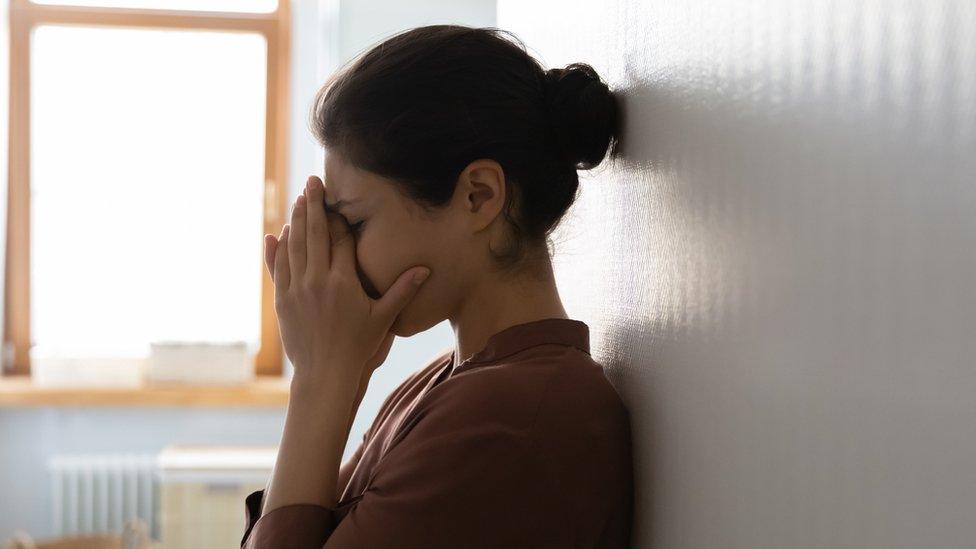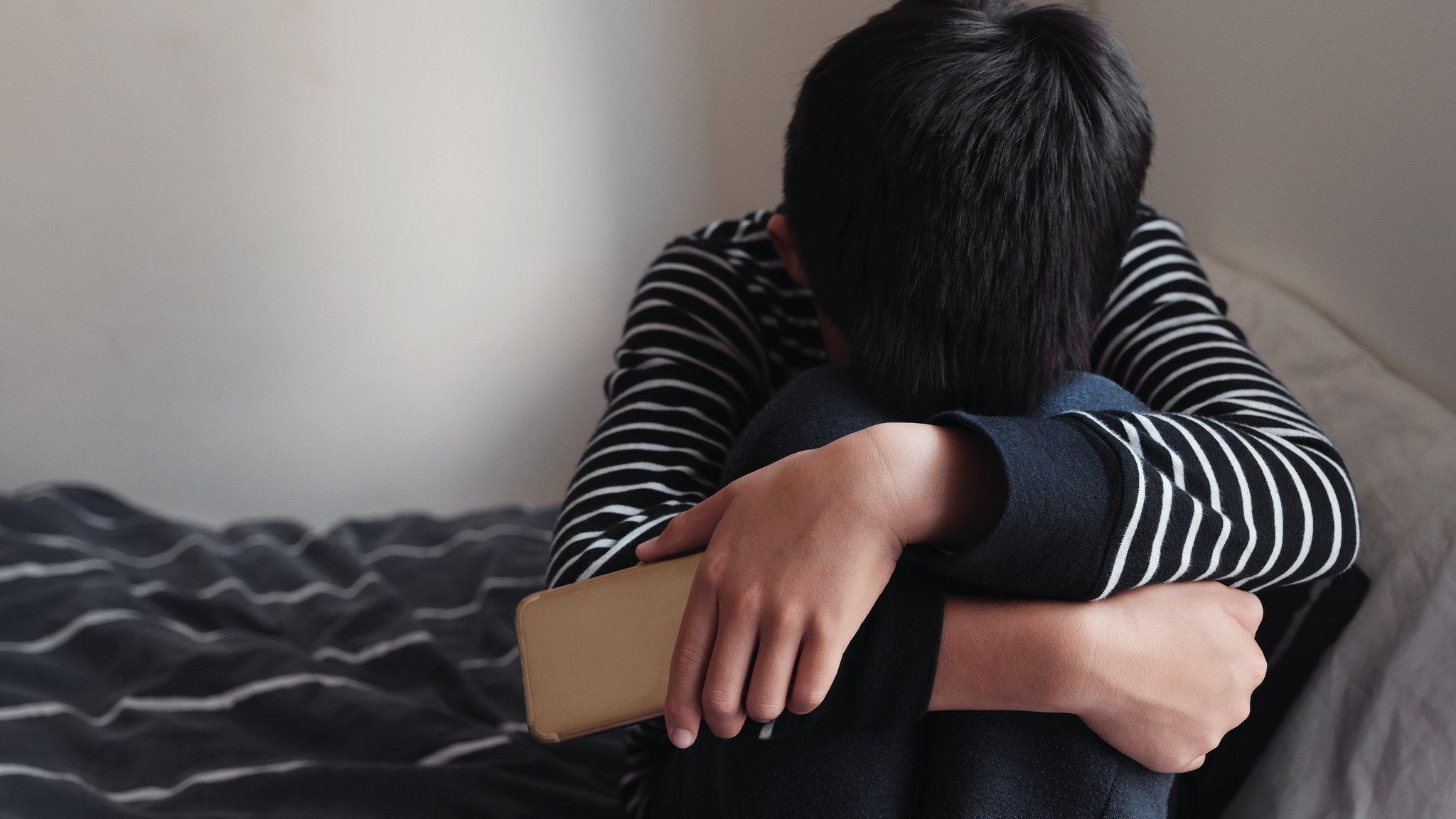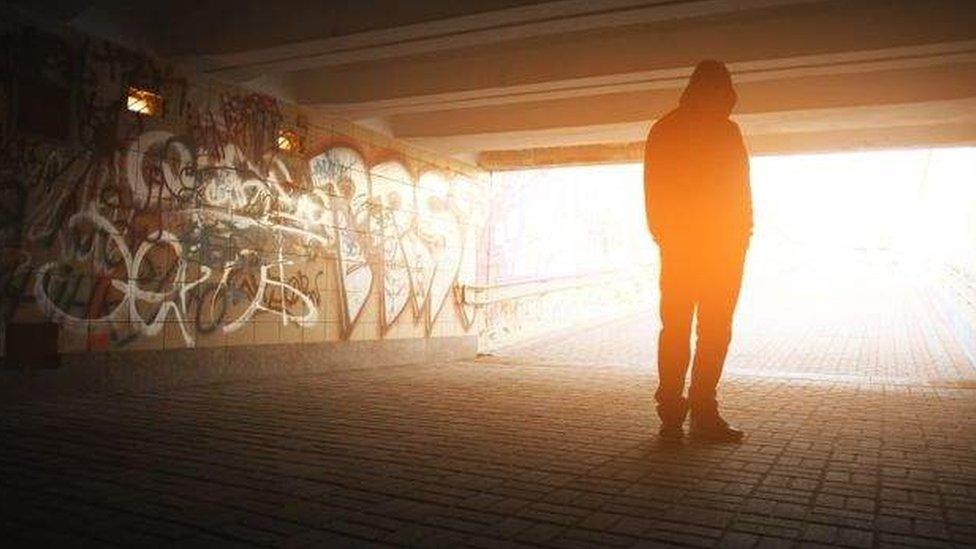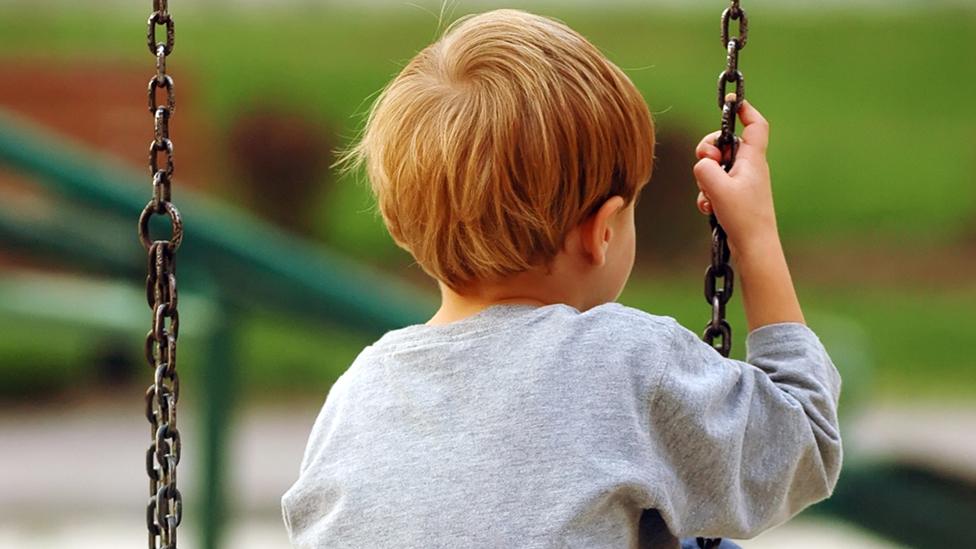Children's care system putting vulnerable teens at risk - report
- Published

Teenagers taken into care in England to safeguard them from exploitation are being put at more serious risk in the care system itself, a report warns.
The Commission on Young Lives report, external says children are moved from their local areas to live in unregulated accommodation targeted by criminals.
It says the system is "unfit for purpose" and is letting down the rising number of over 16s in care.
Ministers say they are "urgently reforming the system".
The review - chaired by former children's commissioner for England Anne Longfield - describes the experience of exploited teenagers as "bleak" and the protections in place to support them as "infuriatingly inadequate".
It paints a picture of a shortage of suitable residential places, a failure to identify those at risk of exploitation, and cuts to funding for early intervention programmes.
It calls for a package of government measures aimed at teenagers at risk, including a ministerial taskforce and a ban on the use of unregulated accommodation for under-18s in care.
According to the report, the care population is getting older and 16 and 17-year-olds with acute needs now make up 23% of children in care.
The system, initially designed to support young children, is now struggling to adapt to the needs of these older children, it says.
Some vulnerable teenagers are being moved away from the area they live in and to places with high levels of crime, according to the report, while criminal gangs have even been known to be tipped off from within local authorities when vulnerable teenagers are moved into unregulated accommodation.
'Ruthless gangs'
Ms Longfield said the social care system was frequently putting young people "in even greater danger".
"Often, we may as well be handing over children directly to ruthless gangs and criminals," she added.
Ms Longfield said resetting children's social care would require "determined action and some funding".
She added: "We know the number of vulnerable teenagers at risk of exploitation entering the care system is becoming older, with more complex and expensive needs, and growing. We also know this is putting an enormous strain on the whole children's social care system."
In March 2021, there were 80,850 children in care in England, a 1% rise on the year before.
Black children are more likely to be in care, the report noted, adding that it was particularly concerned by "racial biases in the system which put black boys at risk of harm".
The Department for Education said it was "urgently reforming the system to address growing pressures".
It highlighted the introduction of national standards and new oversight from watchdog Ofsted for supported accommodation, as well as investment of £259m to increase places in the homes.
The government is also providing £45m for programmes to help vulnerable children at risk of being targeted by gangs.
In a statement, a DfE spokesperson said: "We recognise many vulnerable young people face new and growing risks, which is why we are providing targeted support... to keep these young people engaged in their education and to prevent them becoming involved in criminal activity."
Michelle Lee-Izu, of children's charity Barnardo's, said: "Barnardo's has long warned about the growing threat of child criminal exploitation, so although this report from the Commission on Young Lives is alarming, it is sadly not surprising.
"Agencies are still too often failing to identify victims, even when there are clear signs of harm. We know children who have already had a tough start in life are particularly vulnerable, including those in foster care and residential care, and this report is right to say that there needs to be widespread changes to help keep children safe."

A VERY BRITISH SCANDAL: One of the most notorious and brutal legal cases of the 20th century
A STUNNING WINTER WALK: Shepherdess Amanda Owen takes us through the Yorkshire Dales

Related topics
- Published11 November 2020

- Published29 May 2021

- Published22 November 2021
